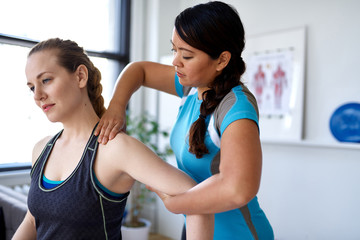Various forms of recovery therapies exist. These range from interventions that focus on a specific aspect of functioning to treatment as a form of recovery. During your recovery, you will likely experience a number of different phases. Recovery Therapy Orlando phase involves a different set of challenges and coping skills. Understanding the stages of recovery can help you determine which steps you need to take next.

To recover from addiction, you must commit to a new lifestyle. This may include changes to your diet, exercise habits, or relationships. You will also need to learn new coping strategies and how to deal with stress without using drugs. Some people find that they can begin to achieve sobriety immediately, while others need more time. Depending on the type of drug you use, you may experience physical cravings for up to a few weeks. However, you should know that this is normal. There are several stages in the Developmental Model of Recovery, developed by Terence Gorski, an internationally recognized expert on substance abuse. Each stage has a variety of names, but the general principles are the same.
Interventions target specific aspects of functioning. Occupational therapy is more than a fancy dress in the office. It is not uncommon to find an OT in your neighborhood. Hence, it’s only fitting that the name is a noun. The best part is that the OTR is free of charge, and the best part is that they are not just OTRs, but therapists, clients, family, and friends who are all in it for the same reason. The OT is all about you and your family’s well-being. Hence, it’s unsurprising that the OT is a hotbed for innovation. Moreover, the OT is a good place to network with peers, share experiences, and learn useful tips and tricks. Lastly, OT is also great for making new friends and reconnecting with old ones.
Several studies have investigated the effectiveness of Social Recovery Therapy (SRT) in young people with complex social recovery problems associated with non-affective psychosis. They found that SRT effectively improved participants’ quality of life with non-affective psychosis. Despite this, SRT still faces considerable challenges. One of the most important is determining the best treatment protocol.
These young patients have complex comorbid difficulties, and their recovery from mental illness is poor. The trial’s primary objective was to test whether SRT and early intervention services (EIS) would improve their social recovery.
The study was conducted as part of a larger research program on some countries early intervention services. Seventy-seven participants with psychosis were randomly allocated to the SRT + TAU or the TAU group. They were followed for two years after randomization. The trial was designed to address the hypothesis that the group receiving SRT would be more active than the TAU group.
The structured activity was measured with a Time Use Survey. The SRT + TAU group showed a gradual reduction in symptoms over the study period. Over 50% of the SRT + TAU group engaged in education and other activities, and the TAU group was engaged in less.
Treatment as a form of recovery. Various forms of treatment as a form of recovery are offered to individuals with substance use disorders. These treatments help patients to understand their addictions, identify triggers, and develop skills to help them maintain long-term abstinence from addictive behaviors.
Some types of therapy include cognitive behavioral therapy, which helps recovering addicts identify and address problematic thoughts and feelings. Motivational enhancement therapy can also help addicts change their negative behavior patterns. Medication-assisted treatment can involve synthetic opioid medications to alleviate withdrawal symptoms. This type of treatment is often used in conjunction with other therapies.
Another form of recovery includes support groups, which engage people recovering from substance use disorders. These support groups offer encouragement and guidance to individuals who are in recovery. These groups can be individualized to meet the needs of different individuals. Recovery centers are independent non-profit organizations that coordinate and promote community-based services to support people in recovery. These centers can provide social activities, advocacy training, and job linkage.